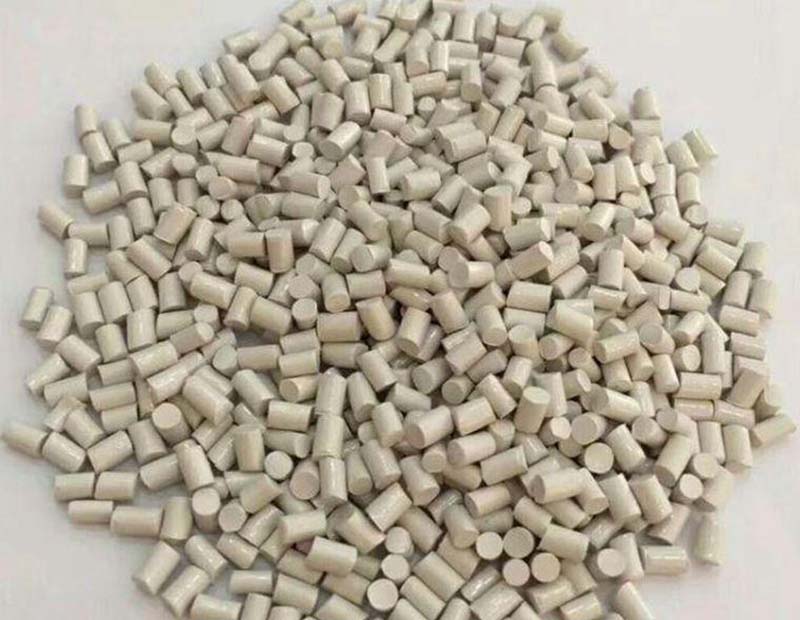Polyetheretherketone (PEEK) plastic is widely recognized for its high performance in extreme conditions. Known for its strength, heat resistance, and chemical stability, PEEK has become the material of choice in numerous industries such as aerospace, automotive, medical, and electronics. While it is not biodegradable, PEEK Plastic offers significant sustainability benefits due to its durability, recyclability, and long lifespan, making it a valuable asset in sustainable manufacturing.

1. Durability and Longevity: Reducing Waste and Resource Consumption
One of the most significant contributions of PEEK plastic to sustainability is its exceptional durability. PEEK can withstand extreme temperatures (up to 250°C or 480°F) and resist wear, abrasion, and chemical degradation over extended periods. This exceptional durability translates to longer product lifecycles in applications such as aerospace components, medical implants, and industrial machinery.
By using PEEK in critical applications, manufacturers reduce the frequency of replacement, which in turn lowers overall material consumption and waste. Products made from PEEK can last for years, even in harsh environments, ultimately reducing the need for frequent repairs, replacements, and disposals. In sectors like aerospace, where safety and performance are paramount, the long-lasting nature of PEEK components means fewer replacements and longer-term resource efficiency.
2. PEEK Plastic and Recyclability: Closing the Loop
Although PEEK is not biodegradable, it offers recyclability that makes it a more sustainable option compared to many other plastics. PEEK can be reprocessed and reused in the production of new parts, reducing the need for virgin materials and minimizing waste. Recycling PEEK helps manufacturers achieve a more circular economy, where the lifecycle of a product is extended rather than disposed of after use.
The recycling process for PEEK is more complex than some thermoplastics, but recent advancements in recycling technologies have made it increasingly efficient. PEEK can be reprocessed through extrusion and injection molding techniques, allowing manufacturers to create new components from recycled PEEK Material. This process not only conserves resources but also reduces the carbon footprint of manufacturing operations.
In some industries, recycled PEEK has already been successfully used in less demanding applications, which shows promising potential for future growth in its recycling capabilities.
3. Energy Efficiency and Reduced Carbon Footprint
The energy required to produce PEEK plastic is generally higher than that of conventional plastics, primarily due to its high-performance characteristics. However, the energy efficiency of PEEK products in their final applications can significantly offset the energy spent during production. PEEK’s ability to withstand high temperatures and harsh conditions means that components made from this material often have lower maintenance and energy consumption over time.
For example, in aerospace and automotive applications, the use of PEEK helps reduce the weight of vehicles, improving fuel efficiency and lowering emissions. This reduction in energy consumption and greenhouse gas emissions is a direct contribution to environmental sustainability.
Moreover, the long service life of PEEK components means that the initial energy investment in producing the material can be amortized over an extended period of use, making it a more sustainable choice in the long run.
4. Sustainable Manufacturing Practices with PEEK
Manufacturers can enhance their sustainability efforts by choosing PEEK for applications where other materials may not be as effective. PEEK’s high performance in extreme conditions eliminates the need for frequent replacements, which reduces material waste and energy consumption in manufacturing processes.
For example, in the automotive industry, PEEK is used to replace metal parts, which helps reduce the weight of vehicles and subsequently improves fuel efficiency. This transition not only reduces emissions but also leads to less wear and tear on other components, further extending the life of the product and reducing the need for raw materials.
The medical industry benefits from PEEK’s longevity as well. Medical implants made from PEEK can last longer than traditional metal implants, which contributes to lower resource consumption in healthcare systems. Furthermore, PEEK's biocompatibility and resistance to sterilization processes make it ideal for sustainable practices in medical device manufacturing.
5. Supporting a Circular Economy: PEEK in Industrial Applications
The use of PEEK in industrial applications has the potential to support a circular economy. Industries that rely on heavy-duty equipment and machinery, such as oil and gas, defense, and manufacturing, are increasingly turning to PEEK due to its wear resistance and high mechanical strength. By using PEEK in high-demand components such as seals, gaskets, bearings, and bushings, companies are able to extend the service life of their equipment and reduce the frequency of replacements, which leads to less waste and resource depletion.
PEEK’s high recyclability also means that products made from PEEK can be reused or recycled after they have reached the end of their life cycle. This ensures that the material stays within the supply chain, contributing to a more sustainable and circular economy.
While PEEK plastic may not be biodegradable, its unique properties contribute to sustainable manufacturing practices in a variety of ways. Its durability, recyclability, energy efficiency, and extended lifespan make it an excellent choice for companies looking to reduce their environmental impact. By investing in PEEK, manufacturers can lower waste, reduce the need for raw materials, and help create a more sustainable industrial ecosystem.
As recycling technologies continue to evolve, the potential for PEEK to play a more significant role in sustainable manufacturing will only grow. Industries that prioritize performance and sustainability will benefit from integrating PEEK plastic into their operations, supporting a more efficient and eco-friendly future.
By understanding and leveraging the sustainability benefits of PEEK, manufacturers can make smarter material choices that not only meet technical requirements but also align with global efforts to reduce waste and conserve resources.






